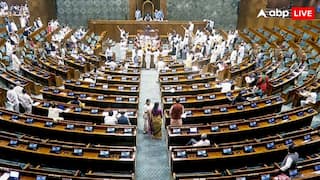Humans Can Misremember Events Within A Few Seconds, Expectations May Create False Memories: Study
While it is believed that only long-term memories could be distorted, new research has shown that humans can also misremember events within a few seconds, leading to illusions.

Memories form an integral part of our lives, especially the happy ones, because they make us cherish the good times. People usually don't want to remember the sad events from their past because these memories make them feel uncomfortable. However, humans often show varied recollections of the same event. When multiple people believe that their distorted memories are accurate recollections, the phenomenon is referred to as the Mandela Effect.
While it is believed that only long-term memories could be distorted, new research has shown that humans can also misremember events within a few seconds, leading to illusions.
How are false memories created?
This happens because expectations often shape one's perception of an event, whether it occurred a few seconds ago or a long time back. Sometimes, shaping long-term memories to fit one's expectations can generate false memories.
Similarly, short-term memory for perceptions formed just one or two seconds ago may not accurately represent what the person saw and perceived at the time of perception. In other words, people often incorrectly remember what they saw or perceived just a few seconds back.
The study describing these findings was published April 5, 2023 in the journal PLOS One.
The study was led by Marte Often from the University of Amsterdam in The Netherlands.
What experiments did the participants perform?
As part of the study, participants were made to perform four experiments, which focused on a subset of false memories, also called "memory illusions".
In the first experiment, the participants were made to undergo a training procedure to see if they were fit to continue with other experiments. They were made to perform basic visual memory tasks.
Out of 45 participants, 40 were found to have normal or corrected-to-normal vision (the ability to see normally with glasses). These 40 participants were presented with circles of six or eight letters. In the circles, one or two letters were mirror-image forms, or pseudo-letters.
After this, they were shown a second set of letters, but were asked to ignore it.
Then, the participants were shown a target shape, and presented with a list of options. They were asked to choose from these options the location at which the target shape was present in the circle shown earlier. Also, they had to rate themselves, on a scale of 1 to 4, on how confident they were about the fact that they remembered the location of the target shape correctly.
After this, the participants were made to perform three similar experiments.
What are short-term memory illusions?
The four experiments showed that some participants reliably reported what was there, which means that their perceptual inference accurately reflected the input they were shown. Meanwhile, other participants erroneously but with high confidence reported what they expected the location of the target shape to be, which means that their memory report was strongly influenced by expectations.
The experiments show that expectations can reshape perceptual representations over short time scales. This leads to short-term memory illusions. These refer to the inaccurate recollections of events that occurred a few seconds ago.
When did short-term memory illusions occur?
According to the study, short-term memory illusions appeared when the participants saw a memory display which contained real and pseudo-letters or mirrored letters.
A substantial increase in high confidence memory errors was observed within seconds after the memory display disappeared. This means that after the memory display was removed, a large number of participants wrongly recollected the location of a target letter, but were highly confident that their memory was accurate.
According to the study authors, the increase in errors over time indicates that the high confidence errors do not purely result from an incorrect perception of the memory display, but due to mistakes in their short-term memory.
Why were more errors observed when the participants were shown mirrored letters?
Most of the high confidence errors occurred for pseudo-to-real letter memories. This means that when the participants were shown mirrored letters in the memory display, most of them reported with high confidence that they saw the real letters.
High confidence errors for real-to-pseudo letters memories were much less frequent. This means that a relatively lesser number of participants who were shown real letters reported that they had seen pseudo letters.
This indicates that the visual similarity of the real and mirrored letters is not the primary cause of the memory illusions. Instead, the participants' world knowledge, or the orientation which letters usually have, drives the short-term memory illusions. In other words, the participants' knowledge of the alphabet makes them expect the letters to be real, rather than pseudo-letters, which is why they were confident about having seen real letters even when they were shown the mirrored forms of those letters.
The authors conclude that prior expectations can shape memory traces, both short-term and long-term.
Related Video
Southern Rising Summit 2024: How Important is Self-Awareness? Insights from Anu Aacharya | ABP LIVE







































